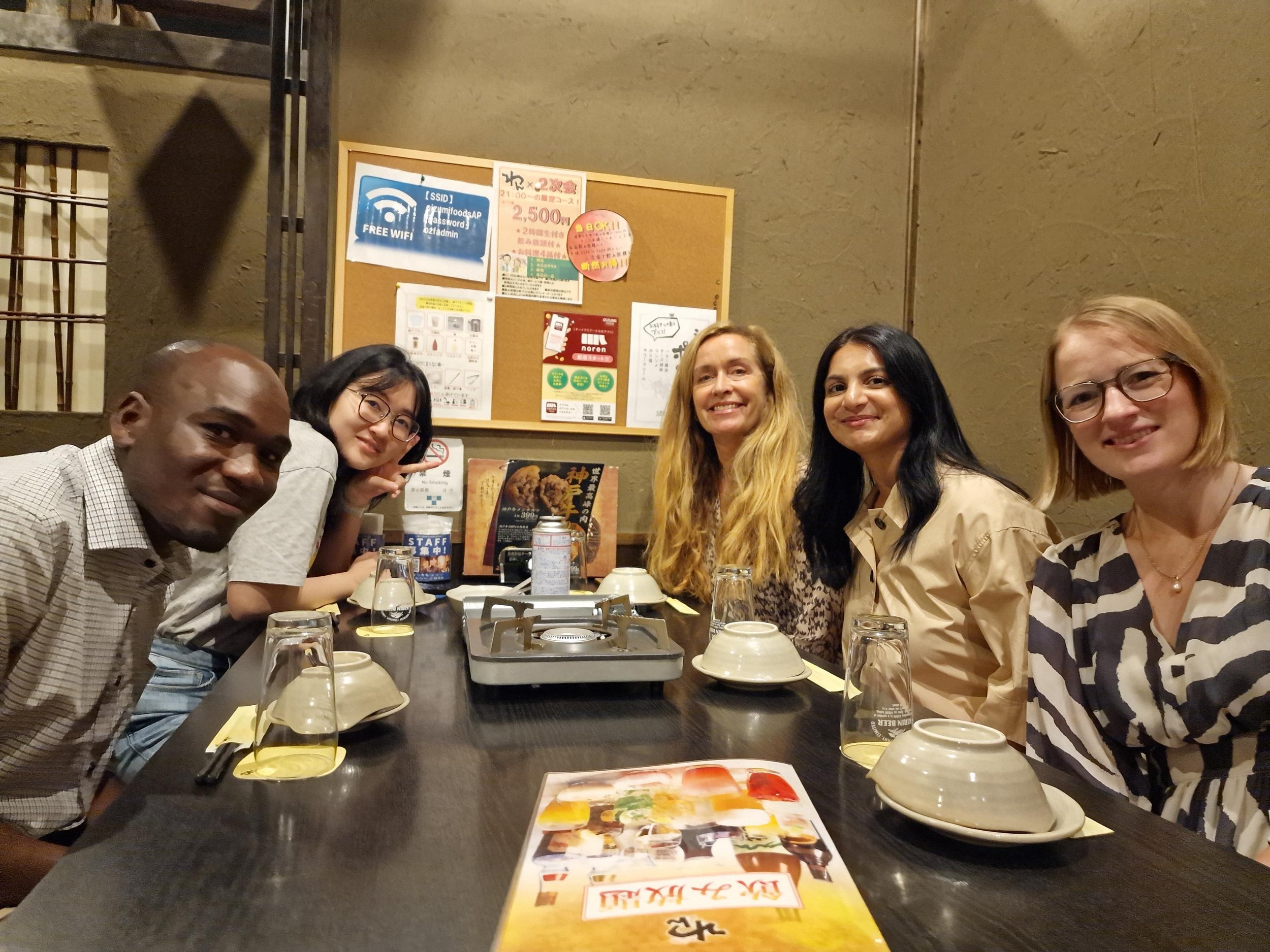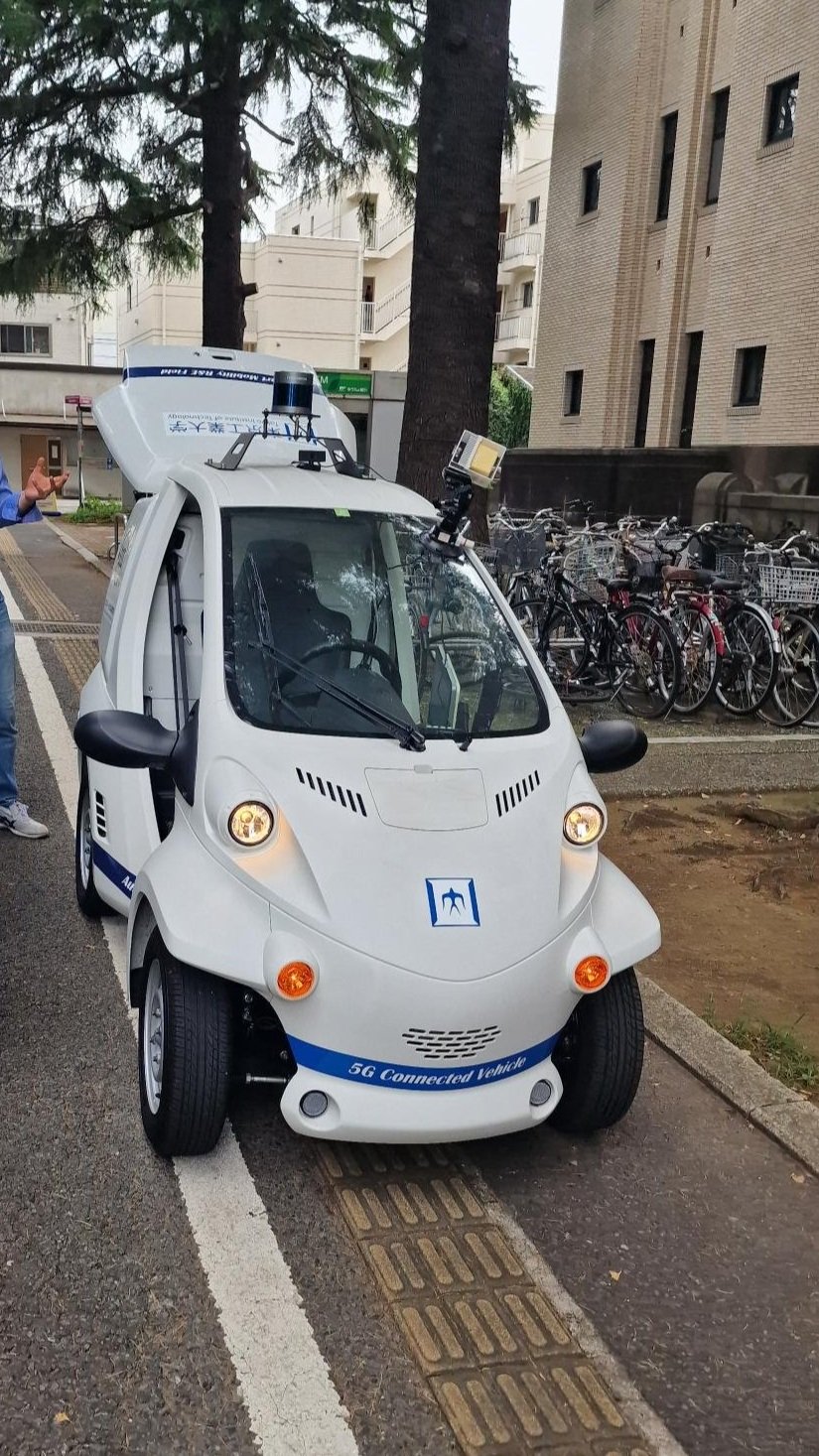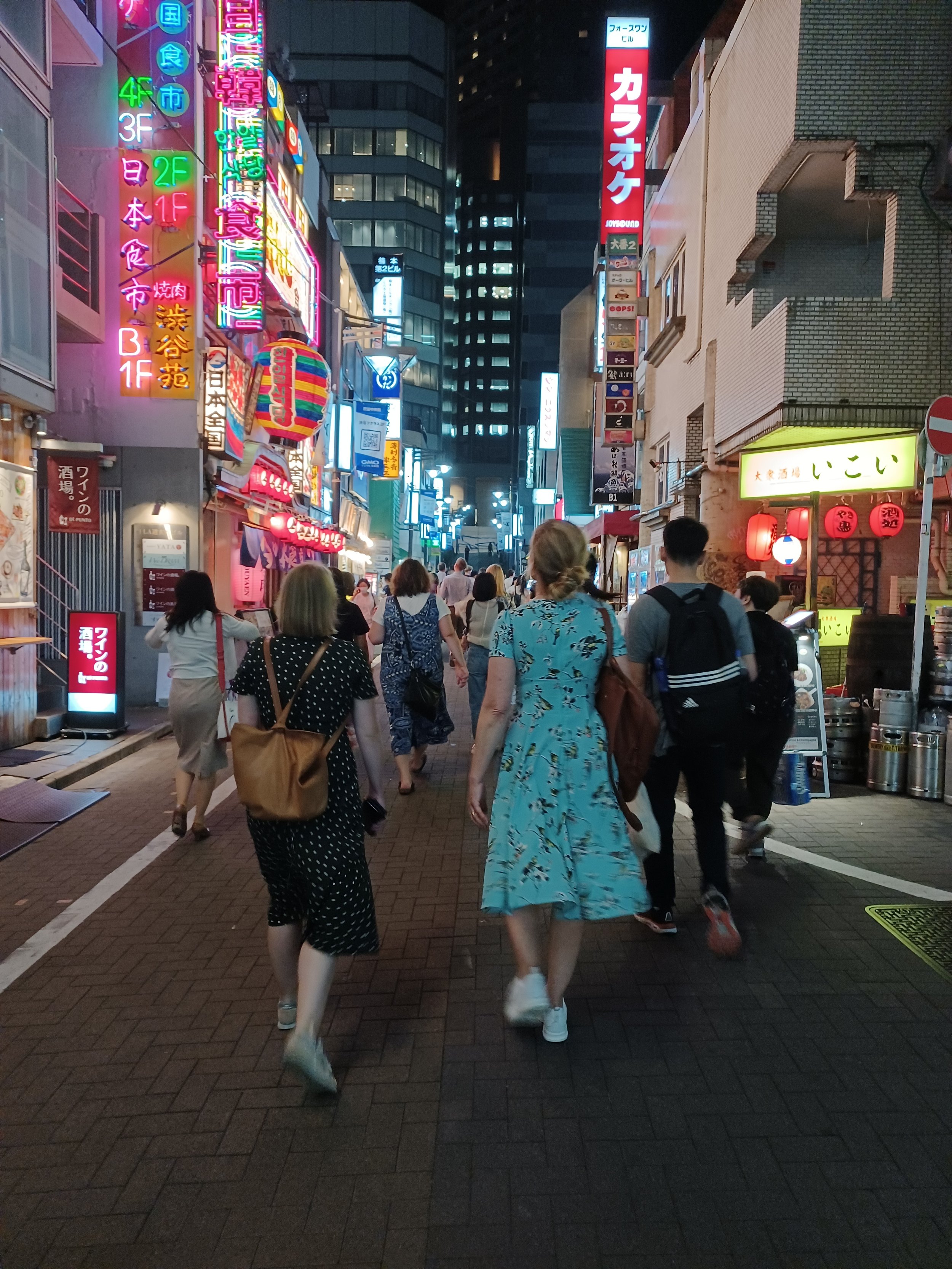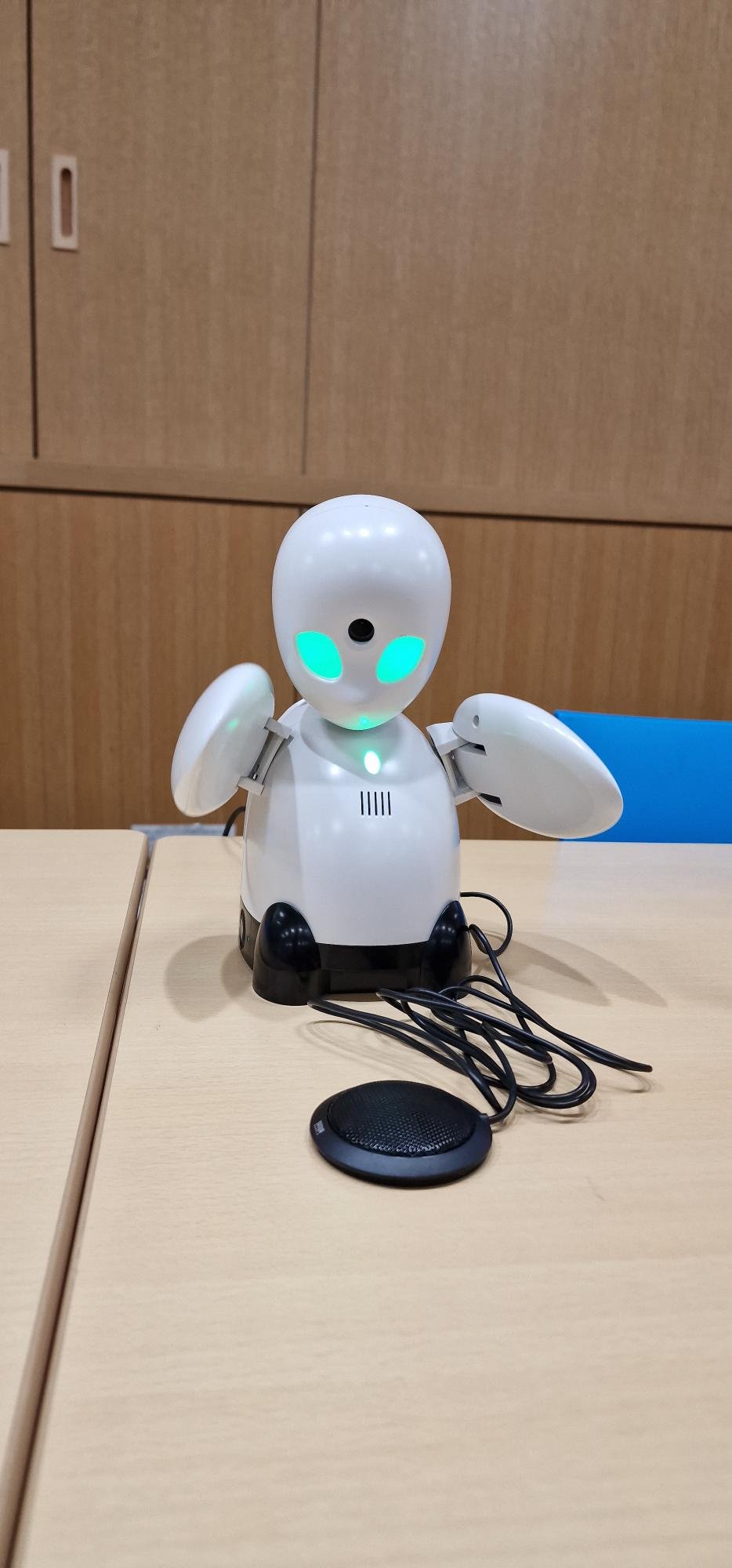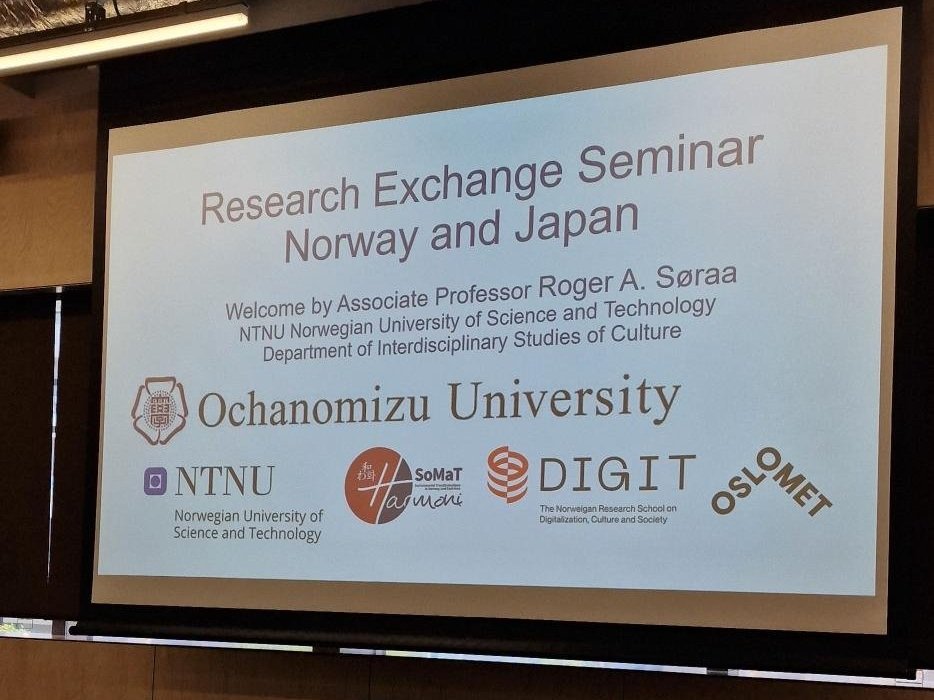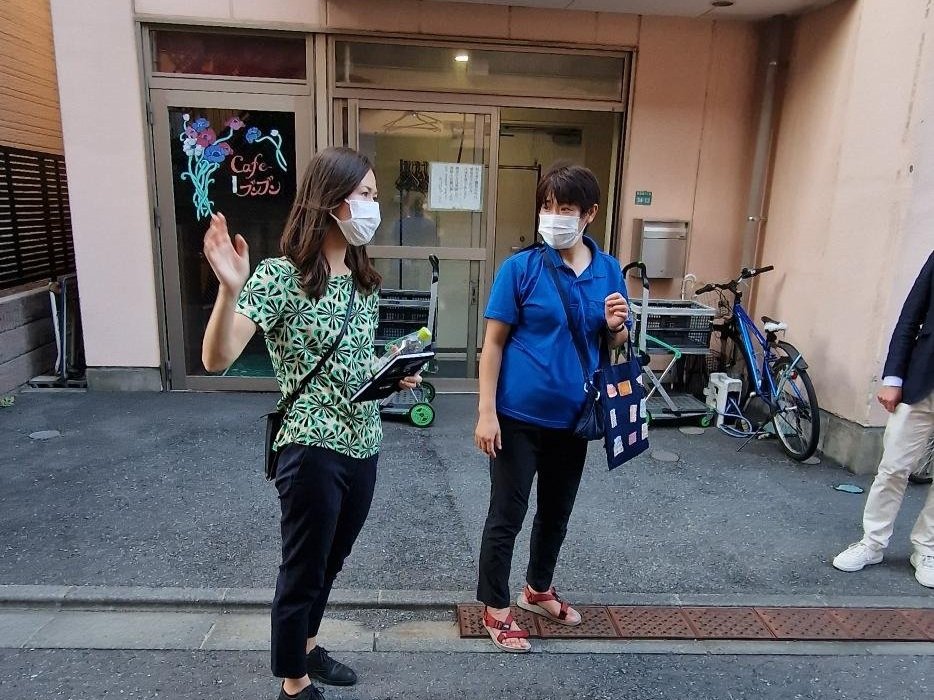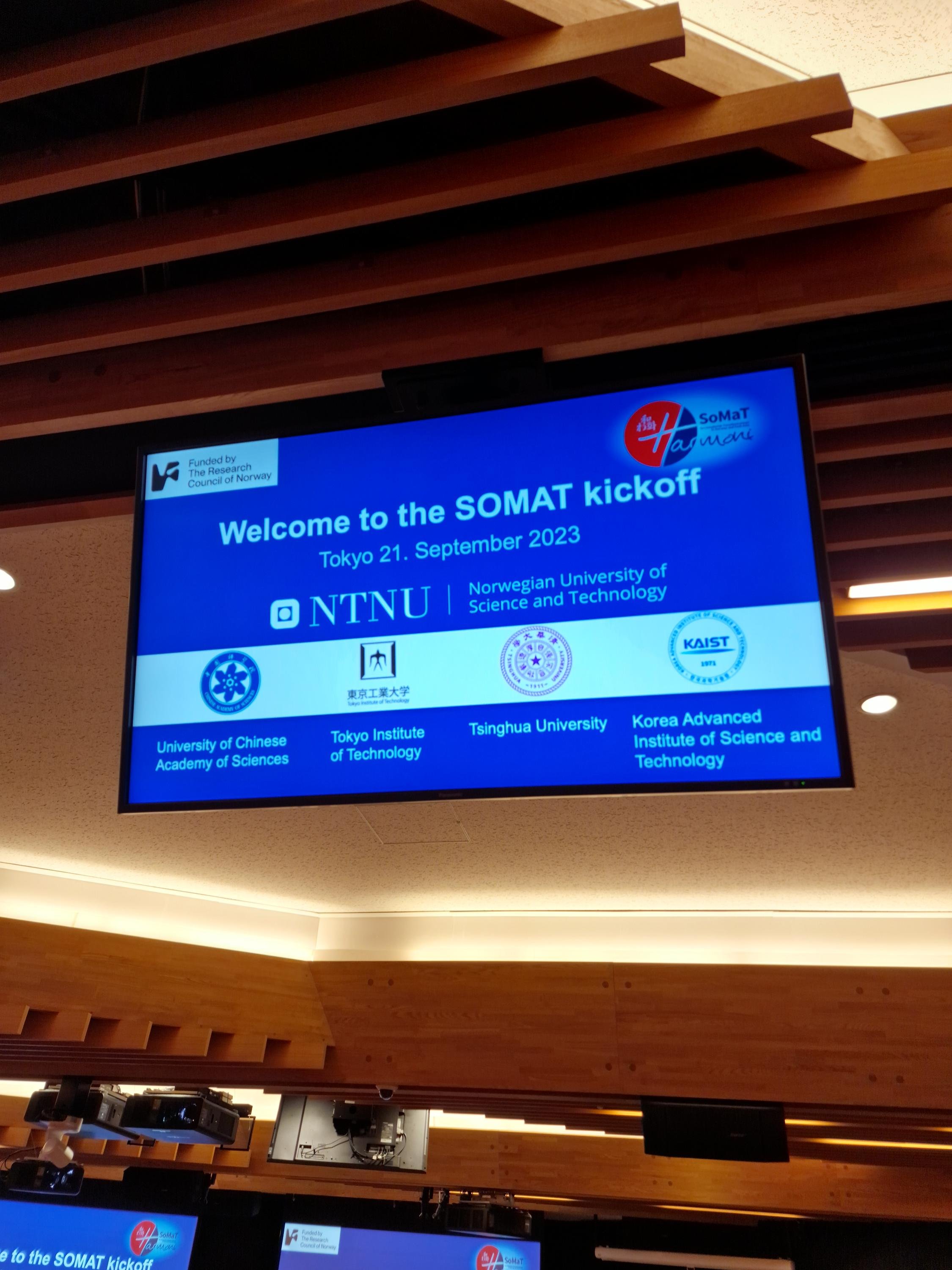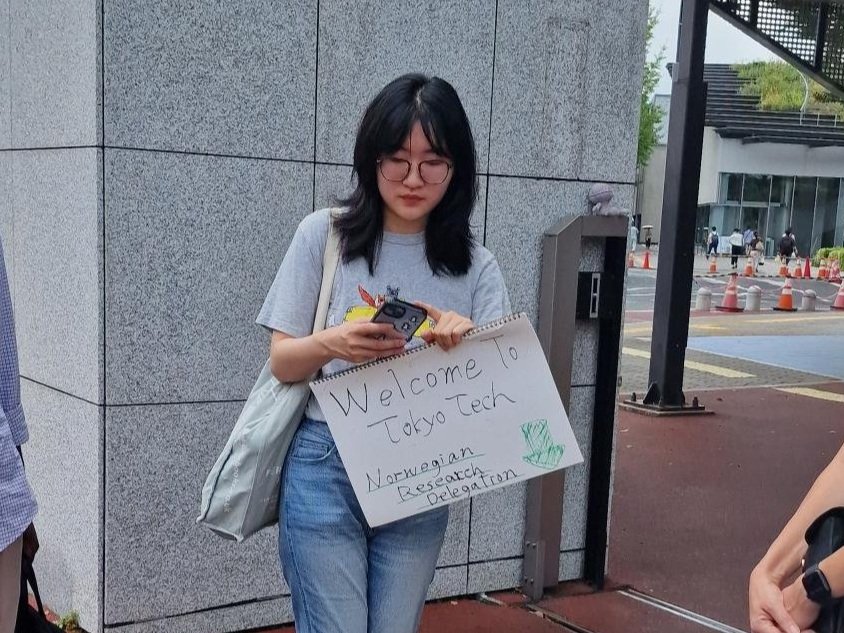In Japan with DIGIT
In September 2023, DIGIT members Shan Wang and Alhassan Yakubu Alhassan joined the hosts of the research school from OsloMet and a delegation from NTNU and KS on a seminar in Japan. Their trip was co-funded by DIGIT, and you can read their travel report below.
Report by Shan Wang and Alhassan Yakubu Alhassan
During this trip, we had the opportunities to explore the digitalisation efforts and technological advancement in Japan, which has differences as well as commonalities with Norway.
Highlights of the visits
Day 1 - 19.09.2023
Ochanomizu University
On our first day, we engaged with scholars at Ochanomizu University, delving into topics such as gender representation in contemporary Japanese society, international relations, security policy, and the structure of the Japanese language. Additionally, we explored social security and welfare, specifically the medical system. Importantly, we presented our research projects and received valuable feedback, fostering academic growth.
Yukiwari Center
Later that day, we visited the Yukiwari Center for disabled individuals, gaining insights into care and support for people with disabilities and their integration into society. The center’s activities aimed at improving the lives of those under their care highlighted the need for sharing best practices to provide similar services nationwide, offering a valuable perspective for my research.
Day 2 - 20.09.2023
Tokyo Institute of Technology (Tokyo Tech)
On the second day, we visited Tokyo Institute of Technology in the morning, where we learned about ongoing research and innovations in digital technologies. Topics included smart mobility, smart infrastructure management with sensors, self-driving cars with connected infrastructure, and the development of digital twin cities. These innovations showcased the technical side of digital infrastructure and its implications for urban development.
Kawasaki welfare technology lab
In the afternoon on the second day, we visited the Kawasaki welfare technology lab. It is a living lab for welfare products and service. The lab evaluates welfare products and then offer consultation and develops the technology with companies (mainly based in Kawasaki city) together. The employees also introduced the Kawasaki Innovation Standard (KIS) to us, which works as a conceptual guideline to evaluate user-friendly and outstanding welfare products. By popularizing the KIS, Kawasaki welfare technology lab tries to activate the industry to develop more safety products for elderly care, then to achieving a livable society. Then, they presented us with a detailed overview on senior care and care robot, which was inspiring and brought up a discussion between Norwegian visitors and KWTL. We discussed on the topic of standardisation and certification to put the technology into practical use in both Norway and Japan and learned the experience from the Japanese side.
Day 3 – 21.09.2023
We went to the SOMAT project kickoff the next day. SOMAT is an international project that investigates sociomaterial transformations in Norway and East Asia from a Humanities-based Science & Technology Studies (STS) framework on three thematic areas: sustainability, digitalisation, and diversity. During the kickoff, project leaders from Norway, Japan, China and south Korea elaborated on the three themes and gave an extenstive introduction on their department setup and research focus, mapping out the general picture of STS studies in east Asia. We also had a fruitful group discussion on the future development of the project, during which we rethought the understanding of diversity as well as how to transfer the barriers to opportunities. The result of the discussion was quite inspiring, thus contributed greatly to the next step of the Norway-Japan/China/South Korea collaboration.
About us
I receive my academic training in media studies and anthropology, and the digitalisation of society has always been my research interests. I was inspired by the Kawasaki lab most during the trip, where the lab played the third-party role in the development of welfare technology. As a support service provided by the government, the lab not only provided external evaluation service for the technology industries but set up a standard to incentivize a better environment for the collaboration between industries and governments. As a mediator in the digitalisation process, the lab can be considered as a positive actor which benefits both parties compared with the time-consuming certification process in Norway.
What I also appreciated during the trip was the constructive ideas on the concept of diversity. As my PhD project focuses on the bias issues of AI usage in human resource management, diversity is one of the keywords in my research. From the seminar in Ochanomitsu University, the visit of Yukiwari center for disabled, and the group discussion during the SOMAT kickoff, I learned a lot not only from the theoretical interpretation of the concept by scholars, and the practices by the workers in the care center. Japanese scholars mentioned during their speeches that the concept of diversity refers more to gender diversity in Japanese context, as there are not many ethnic groups in the society. However, the practices in the care center for people with disability showed me another representation of the respect to diversity in Japanese society. With the effort of the founder and workers in the center, they presented a picture of diversity, where everyone deserves being treated “normal” in the world. Let alone the discussion from the SOMAT kickoff, that participants pointed out that the project should consider more diversity, including racial, aging, and social class. Through these comparative studies, I hope that I can contribute to the solution of societal issues with an international outlook.
My academic background revolves around sociology, development studies, and urban development, with a focus on digitisation and participation in planning. My PhD thesis explores how networks among different actors influence decision-making in urban development. The recent seminar in Japan provided valuable insights into the impacts of digitisation on various facets of society, underscoring its relevance to my academic pursuits and future career. The insights gained provided me with a comprehensive view of digitalisation's impact on urban planning in Japan which will go a long way to support my research project. This understanding allows me to draw lessons and experiences applicable to diverse contexts, fostering inclusive digitalisation strategies. This experience broadened my perspective on utilizing digital technologies in municipal planning, particularly for the elderly population, a shared characteristic between Norway and Japan.
Collective conclusion
The observations made during these visits emphasized the significance of digitisation in Japanese society. The extensive use of digital technology in daily life, including vending machines, robot waiters, and smart check-out machines, highlights its potential for societal transformation. Collaborative research in these areas promises fruitful outcomes. These collaborations can address common challenges in Norway and Japan and contribute to global discussions on inclusive and sustainable urban development.
As researchers interested in the intersection of digitalisation and various social aspects, the visit to Japan unveiled promising avenues for collaboration between Japanese universities and Norwegian institutions. These themes offer opportunities for cross-cultural analysis and innovative research projects.
The knowledge gained from this trip deepened our understanding of how digitisation and its potential impact on sociology. These insights will significantly enhance our ongoing research projects and career prospects in the field of digitalisation and society. We are excited about the potential for future collaborations, including opportunities for comparative research and the expansion of personal networks, all of which will further enrich our academic and professional journey.

